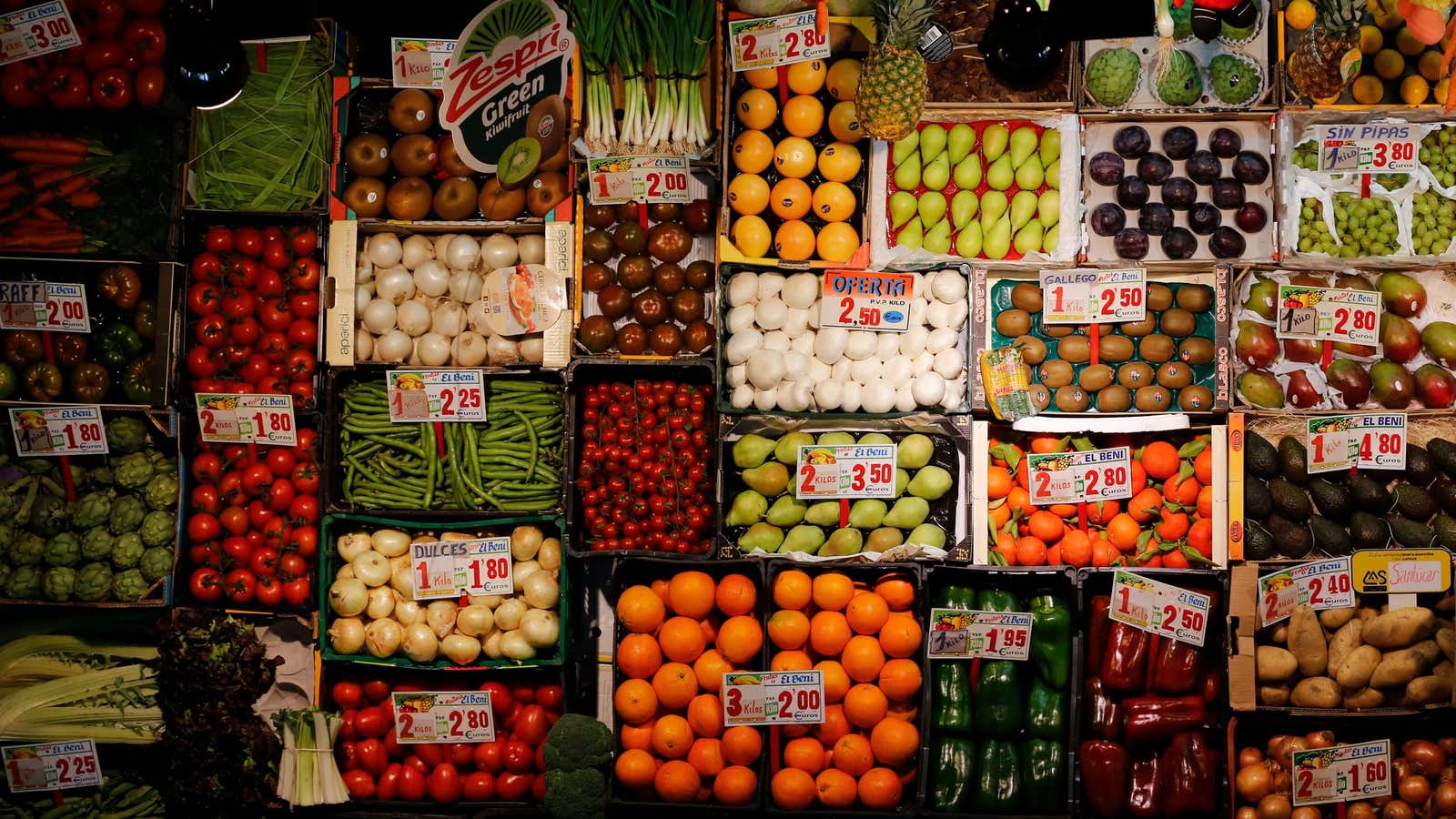A new nutrition study published in the Journal of the American Medical Association (JAMA) makes the case that eating more organic foods will likely reduce the risk of cancer.
The general idea is pretty simple. Non-organic produce is often sprayed with pesticides that have been tied to an increased risk of certain cancers. If a person eats an organic apple instead of a regular, run-of-the-mill apple, they’re going to be less exposed to pesticide residues.
But despite a swarm of headlines touting the research, the study’s details aren’t terribly compelling. Among the 68,946 participants, there was an inverse association between having a diet high in organic foods and overall risk of cancer. That’s an interesting point, but still, of all those people, only 1,340 got cancer for the first time throughout the duration of the research—just under 2% of the original pool. The absolute risk reduction—the number of percentage points a person’s own risk went down if they ate mostly organic food—was pegged at 0.6%.
As for more concrete details about individual diets of participants, those were unavailable. The researchers wrote in the study that participants self-reported their eating habits through questionnaires, a method of data-gathering that has plenty of room for error. Maybe a respondent classified non-organic foods as organic, maybe they purposefully mischaracterized what they ate. There are a lot of unknown variables.
And then there was the commentary commentary piece published in JAMA alongside the new study, coauthored by Frank Hu, who chairs the department of nutrition at Harvard University’s T.H. Chan School of Public Health. He’s a big deal in the world of nutrition, and sat on the US government’s most recent Dietary Guidelines Advisory Committee. Hu wasn’t effusive about his faith in the work.
“Organic food intake is notoriously difficult to assess, and its self-report is highly susceptible to confounding by positive health behaviors and socioeconomic factors,” Hu wrote.
In other words, everyone considered in the study was treated equally, but that’s not what it’s like in the real world. The people who can afford to eat organic foods typically enjoy better health throughout their lifetimes already. But not all of the original 68,946 participants were necessarily from a high socioeconomic income bracket—in fact, the study offers no socioeconomic data about the participants at all.
And finally, as Hu points out, the study is written in a way that may “imply” that the people who reported eating more organic foods were less exposed, in general, to pesticide residues on other foods. That’s a completely unsubstantiated implication. Someone could have listed eating organic tomatoes everyday of the week, but they might also have listed eating non-organic apples every day of the week, as well.
So the new research is interesting, but it should be taken with a grain of salt and not chosen—at least not yet—as a heralding call to eat only organic food. There are plenty of unanswered questions still, and a lot of barriers to entry to being able to adopt that style of diet. As Hu put it, perhaps we should start by tackling the herculean task of convincing people to simply eat more fruits and vegetables. Then we can start talking about organic versus non-organic.
